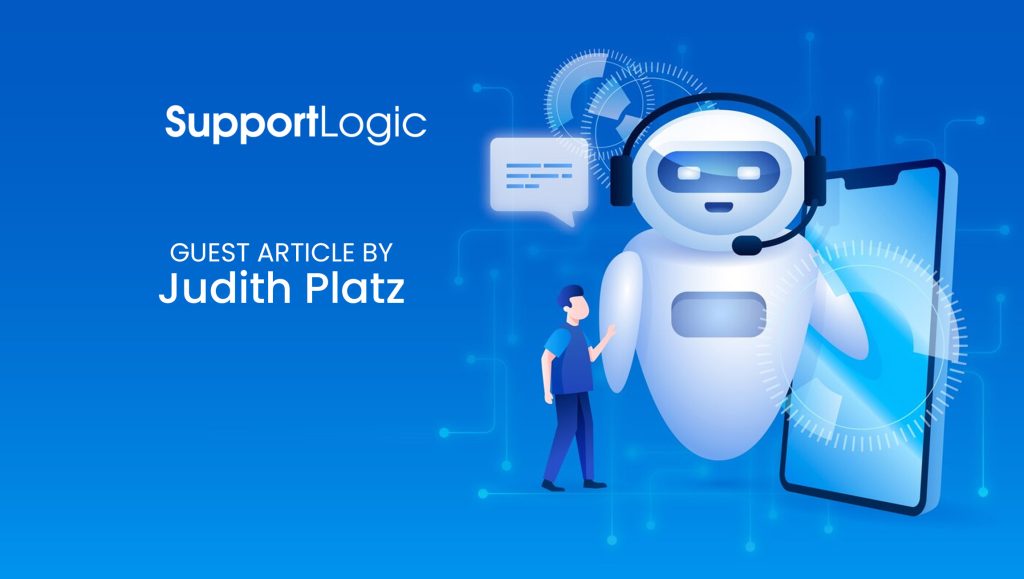With any customer support interaction, customers hope for a swift, simple, and satisfying experience. But historically, support exchanges are laden with delays, require agent transfers, and may leave a customer listening to the same information multiple times – all of which lead to mounting frustration and ultimately wear on the Customer Experience (CX). Now, flip the perspective to the Agent Experience (AX): high caseloads, unexpected challenges, stretched resources. This stress leads to agent burnout, affecting their ability to provide quality service.
It’s clear that CX and AX are not siloed entities but rather two sides of the same coin. A happy agent translates to a satisfied customer and vice versa. Recognizing this, a staggering 95% of CEOs, according to NTT’s State of CX 2023 report, plan to merge CX and AX improvements into a unified, “end-to-end” strategy. It’s a powerful marriage, promising enhanced satisfaction, revenue growth, business agility, and resilience.
But how do we strike a balance? This is where artificial intelligence (AI) steps in, encompassing Natural Language Processing (NLP), Machine Learning (ML), and both predictive and generative models. By taking on the heavy lifting of repetitive tasks, AI enables agents to focus on more complex, meaningful aspects of customer service. Less exertion on routine, mundane tasks translates into agents devoting more valuable time and energy to creating meaningful customer experiences. Even beyond boosting team efficiency and productivity, AI technology helps foster greater job satisfaction among support staff. When agents feel more motivated and engaged, they’re able to concentrate on impactful interactions driving a positive customer relationship.
AI’s role in alleviating the burdensome parts of support workflows means that customers receive more attentive, personalized service. The technology provides agents with deeper insights and faster problem-solving capabilities, improving both the customer and agent experiences. It’s more than a streamlining tool, it’s reshaping the very nature of customer support, making it more human-centric and effective.
Read More: SalesTechStar Interview with Kate McCullough, Co-founder and Chief GTM Officer at Nue.io
Boosting Customer Experience with AI
1. Speed of Light Resolutions:
AI-powered virtual agents help eliminate long wait times, ensuring customers avoid the dreaded “support purgatory.” AI-powered chatbots and virtual assistants act as first responders, swiftly addressing basic inquiries and resolving simple issues. This frees up human agents for complex cases and delivers lightning-fast resolutions, reducing wait times and frustration.
2. The Voice of the Customer:
AI isn’t just about speed; it’s about understanding. Customer support often struggles to keep pace with evolving customer needs, relying on lagging indicators to gauge satisfaction. This reactive approach is fundamentally flawed. Proactive support lies in leveraging the power of customer sentiment analysis. Sentiment analysis tools delve into customer interactions, deciphering their emotions and hidden meanings. This “voice of the customer” becomes invaluable for personalizing support, tailoring responses to individual needs, and ensuring every interaction feels like a genuine conversation, not a robotic script.
We can unlock the hidden wealth of preferences and opinions by applying natural language processing (NLP) and machine learning (ML) techniques to customer interactions. This deep understanding of customer perspectives unlocks a new level of insight, empowering proactive support and paving the way for a truly customer-centric approach.
3. Proactive Empathy:
Imagine a support experience where issues are anticipated and resolved before they arise. Predictive AI makes this a reality by analyzing past interactions and identifying patterns. A customer frequently encountering product glitches might receive proactive troubleshooting tips, or a user struggling with a new feature might be automatically presented with a helpful tutorial. This level of foresight fosters trust and loyalty, turning customers into delighted brand advocates
Empowering Agents with AI as their Sidekick
1. The Right Case, Right Now:
Intelligent case routing, another AI benefit, ensures the right agent tackles the right issue. AI matches inquiries with the most qualified resources by analyzing case specifics and agent expertise. This streamlines workflows, eliminates guesswork, and empowers agents to approach their tasks confidently.
2. A Confident Partner:
Let’s face it, complex cases can be daunting. But with AI stepping in as a supportive sidekick, agents gain a newfound confidence. Multilingual Gen AI, for example, can provide real-time suggestions for next steps, craft personalized responses, and even translate languages on the fly. This empowers agents to navigate intricate situations with finesse, knowing they have a reliable AI co-pilot.
3. Beyond Automation, Augmentation:
AI isn’t here to replace agents; it’s here to elevate them. AI frees up valuable agent time for meaningful customer interactions by automating repetitive tasks like data entry and ticket classification. This allows agents to focus on building relationships, offering more resounding support, and truly understanding customer needs. It’s a shift from mere task completion to genuine human connection, ultimately forming the bedrock of exceptional CX.
The “Two Birds, One AI-Powered Stone” Advantage
By implementing these AI-powered strategies, businesses don’t just improve CX and AX; they achieve a synergistic effect. Satisfied customers drive revenue growth and brand loyalty. Happy agents, empowered by AI and focused on meaningful interactions, deliver even better CX, further building customer trust and satisfaction. It’s a virtuous cycle fueled by the rapidly progressing abilities of AI.
Read More: 3 Things Sales Leaders Actually Want from Marketing in 2024




















